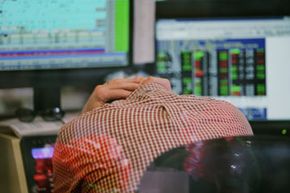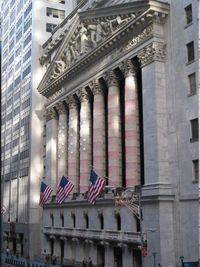Eyal Shahar simply wasn't the type of person who could stand being a passive investor, just putting money into an individual retirement account (IRA) or 401(k) and expecting good things to happen. After a successful stint as a diamond importer, Shahar decided to sell his business in 1990 and open a day trading company where he worked with several traders to invest the capital he had accumulated through the sale of his import business.
Naturally, Shahar wanted the traders -- who earned a cut of every dollar they made -- to be as profitable as possible. So at the end of each trading day, they gathered together and shared what happened; those who did well explained how and mistakes were identified by those who hadn't fared as well [source: Harkey].
Advertisement
This collective learning forum worked perhaps too well, since many of the traders Shahar hired left to invest their own money. However their leaving led Shahar to an insight -- and a new business, the Online Trading Academy, which Shahar founded in 1997 in Irvine, Calif. "What he concluded was he's better at teaching people how to trade than running a day trading floor," says Tony Harkey, the vice president of marketing at the Online Trading Academy. "So he decided to change the business and focus on educating the average individual investor or trader how to trade like a professional."
Thus the Online Trading Academy was born, a business that has grown from one brick-and-mortar location in California to 38 locations around the world -- including cities like Vancouver and Toronto, as well as Singapore and Mumbai -- with plans to expand to Jakarta, Indonesia and Hong Kong [source: Harkey].
Each location is an individually owned franchise that receives support in the form of marketing and other services from corporate headquarters in California. Using the original lessons generated from the teaching sessions at the end of each trading day as the foundation of its curriculum, the Online Trading Academy offers a wide variety of courses in trading different financial instruments, such as options, foreign currency and stocks. The company has offered its instruction on how to trade like a professional to around 20,000 students -- many of whom express great satisfaction with what they've learned -- though both the Securities and Exchange Commission (SEC) and other investment professionals urge great caution to individuals considering trading, warning that losses can be steep and quick (more about that later).
Keep reading to find out exactly what trading is -- and isn't.
Advertisement




